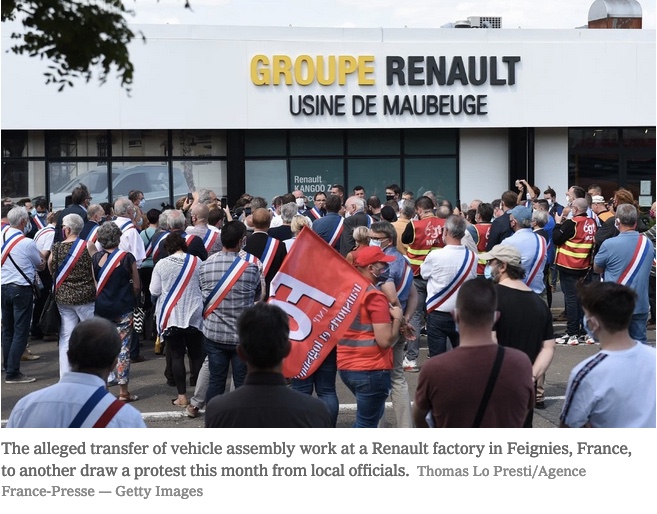FRANKFURT — About eight million people around the world earn their living making cars and trucks. It’s becoming clearer that not all of them will come out of the pandemic with jobs.
The French carmaker Renault announced an emergency cost-cutting plan on Friday that is likely to serve as a grim template for an industry that was in deep trouble even before the coronavirus brought sales nearly to a standstill.
Renault said it would cut nearly 15,000 jobs worldwide, or about 8 percent of its work force, and pull out of China. The company also vowed a drastic reduction in production as it tries to deal with “the major crisis facing the automotive industry.”
Renault has been hit hard by the pandemic. Its sales in the European Union, the company’s most important market, fell almost 80 percent in April, when dealerships were closed and most buyers were not leaving their homes.
“It’s not just Renault,” said Peter Wells, director of the Center for Automotive Industry Research at Cardiff University in Wales. “There are too many factories, too many models, too many dealers. A crisis like this is ruthless in exposing the vulnerabilities of these companies.”
Nissan, Renault’s partner in a global automaking alliance, said Thursday that it would close factories in Indonesia and Spain as it reduces the number of cars it produces by a fifth. The announcement came after Nissan reported a loss for the fiscal year ending in March of 671 billion yen, or $6.3 billion.
Volvo Cars said last month that it would cut 1,300 white-collar jobs in Sweden, its base. Other carmakers, such as Fiat Chrysler and PSA, which makes Peugeot, Citroën and Opel vehicles, will be under pressure to make similar cuts.




